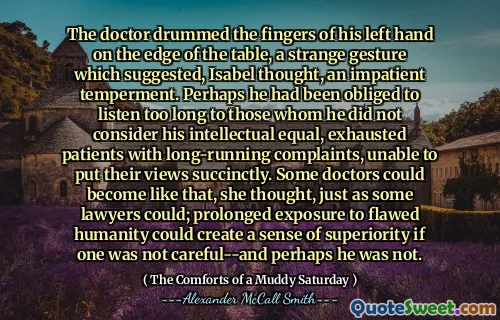
It had always struck her as wrong that we should judge ourselves-or, more usually, others-by single acts, as if a single snapshot said anything about what a person had been like over the whole course of his life. It could say something, of course, but only if it was typical of how that person behaved; otherwise, no, all it said that at that moment, in those particular circumstances, temptation won a local victory.
The quote highlights the inherent injustice of evaluating individuals based solely on isolated actions. The author suggests that using a singular moment, or act, as definitive evidence of someone's character is fundamentally flawed. It implies that such judgments fail to capture the entirety of a person's experiences and behavioral patterns over their lifetime. A single event may be indicative of a person's tendencies, but it doesn't offer a complete or fair assessment of who they are as a whole.
Moreover, the author emphasizes that circumstances play a significant role in how individuals behave. A moment of weakness or temptation resulting in a poor decision should not overshadow the broader context of a person's life. Instead of hastily judging others, it is crucial to consider the complexities and nuances that define their character. This perspective advocates for a more compassionate and understanding approach to human interactions, recognizing that everyone is capable of both triumphs and failures.










